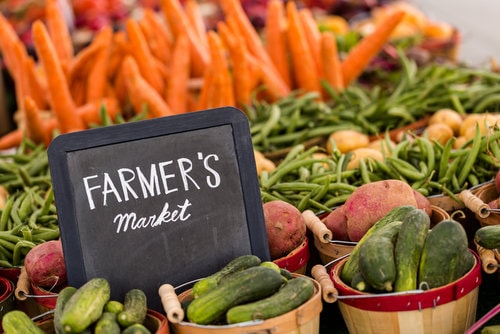Grant is worth more than $90,000
By Diego Flammini, Farms.com
The Kansas Department of Agriculture (KDA) has received more than $90,000 to use towards increasing consumer awareness about farmers’ markets, in turn hoping to see an attendance spike at markets across the state.
The KDA received $98,549 as part of the United States Department of Agriculture’s Farmers Market Promotion Program Grant. The grant helps local people access local food from local farmers, while also providing training, technical assistance and supporting agritourism.

“Our goal is to enhance existing farmers’ markets by creating a toolkit that these groups can use to promote their markets locally and help connect consumers and producers,” said Julie Roller, agriculture marketing specialist.
The number of farmers’ markets across the United States has continued to grow within the past 20 years, from about 1,700 in 1994 to more than 8,000 in 2013.
According to the USDA’s Agricultural Marketing Service there are 8,497 farmers’ markets in the United States of which 56 are in Kansas.
Kansas also received nearly $25,000 as part of the USDA’s Federal State Marketing Improvement Program Grant.
The money will be used to host egg grading workshops, increasing and improving egg grading training and education, and help farmers buy egg handling equipment – requirements farmers felt were necessary.
“By accurately grading their eggs, farmers can take advantage of opportunities to sell eggs in local markets and expand retail distribution options,” Roller said.
The poultry industry in Kansas, including egg production, is worth about $112 million annually to the state’s economy.
Join the conversation and tell us your thoughts about the grants Kansas received.